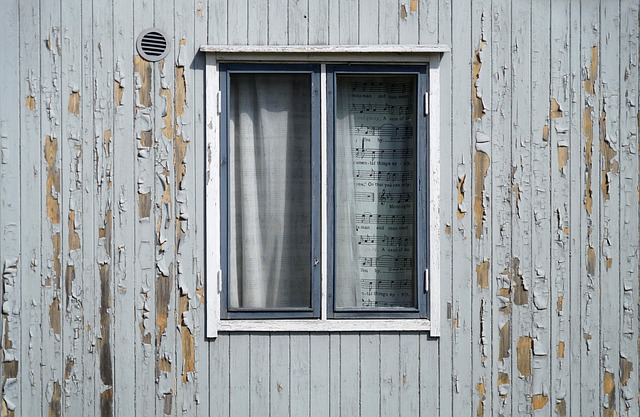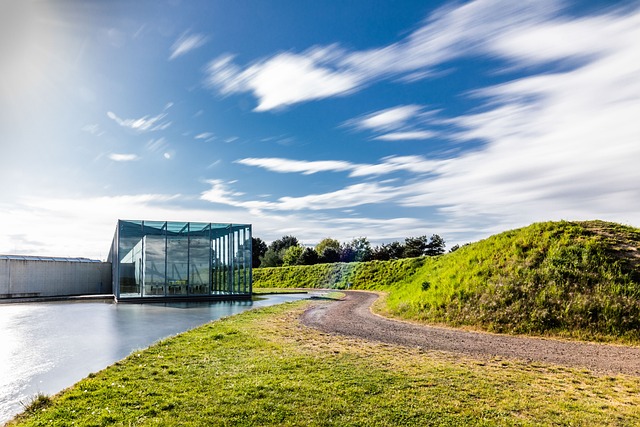Understanding soil conditions is crucial for Foundation Repair Specialists before initiating any foundation project. Different soil types impact structural stability and longevity. Issues like poor compaction, unstable clay, and high moisture content pose challenges, leading to structural damage if unaddressed. Specialists employ various assessment methods to identify problems and tailor solutions, including soil stabilization techniques and additives. Geotechnical solutions like deep foundation systems, soil reinforcement, and cementation ensure robust soil improvement for load support. Global success stories highlight the effectiveness of these techniques in tackling foundation construction challenges. Proactive measures, regular inspections, and best practices by Foundation Repair Specialists safeguard foundation longevity and structural integrity.
Soil improvement is a critical aspect of foundation projects, ensuring structural integrity and longevity. This comprehensive guide explores various facets of soil management for foundations, from understanding local soil conditions to implementing effective stabilization techniques. We delve into common issues like poor compaction and moisture content, highlighting their impact on structures. Additionally, we present assessment methods, innovative additives, and geotechnical solutions. Case studies showcase successful transformations, while best practices emphasize the role of Foundation Repair Specialists in long-term protection.
Understanding Soil Conditions for Foundation Projects

Before diving into any foundation project, it’s crucial to understand the soil conditions beneath your feet. Soil plays a pivotal role in the stability and longevity of structures, making it an essential factor for Foundation Repair Specialists. Different soil types have distinct properties that can affect the performance of foundations, from load-bearing capacity to drainage and compaction. For instance, sandy soils may offer easier excavation but are less stable over time, while clayey soils provide better compaction but are prone to swelling and shrinking with moisture changes.
Knowing these nuances allows Foundation Repair Specialists to make informed decisions about foundation design and construction. They can recommend suitable soil-structure interactions, such as utilizing pilings for sandy soils or deep foundations for areas with high water tables. Understanding soil conditions ensures that the foundation is built to withstand environmental pressures, preventing future issues like settling, cracking, or shifting.
Common Soil Issues and Their Impact on Foundations

Soil issues can significantly impact foundation projects, leading many homeowners and construction professionals to seek help from foundation repair specialists. Common problems include poor soil compaction, unstable clay soils, and excessive moisture content. These issues can cause structural damage, such as cracks in walls, uneven floors, and misaligned doors or windows.
For instance, poorly compacted soil may not provide the necessary support for a building’s foundation, leading to settling and potential structural failure over time. Unstable clay soils, when subjected to rapid moisture changes due to weather conditions or poor drainage, can expand and contract, exerting tremendous pressure on foundations. Excessive moisture can also contribute to the degradation of materials used in construction, making it crucial to address soil issues before initiating any foundation projects.
Assessment Methods for Identifying Soil Problems

Identifying soil problems is a crucial step in any foundation project, and Foundation Repair Specialists employ various assessment methods to determine the best course of action. One common approach involves visual inspection, where experts examine the site for signs of damage, settlement, or uneven terrain. This initial observation helps pinpoint areas of concern that may require further investigation. Additionally, soil testing is an indispensable method, allowing specialists to analyse samples for critical factors like moisture content, compaction, and composition. These tests provide valuable data, enabling specialists to assess the stability and strength of the soil, which is essential for safe and solid foundation repair.
Further techniques include geotechnical surveys, such as borehole drilling and cone penetration testing, offering detailed insights into soil layers and their properties. Such comprehensive assessments ensure that Foundation Repair Specialists can tailor their solutions to specific soil challenges, guaranteeing the longevity and stability of the foundations.
Strategies for Soil Stabilization and Improvement

Soil stabilization and improvement are crucial steps for any foundation project, as they ensure a solid and durable base for structures. Foundation repair specialists employ various strategies to achieve this, including geotechnical solutions like deep soil mixing, which involves incorporating stable materials into loose soil to enhance its bearing capacity. This method is particularly effective in areas with weak or unstable soils, ensuring the integrity of the foundation.
Another approach is soil reinforcement using materials such as geo-grids or mesh. These structures provide additional strength and stiffness to the soil, preventing settlement and shifting. By combining these techniques with proper drainage systems and regular monitoring, foundation repair specialists can significantly enhance the overall stability and longevity of a structure, addressing potential issues before they become major problems.
Effective Soil Additives and Amendments

Soil additives and amendments play a pivotal role in enhancing soil quality for foundation projects, where stability and strength are paramount. Foundation repair specialists often recommend organic materials like compost, which improves soil structure and fertility. This natural process promotes better water retention, enabling the soil to support heavier loads without compromising integrity. Additionally, sand or gravel can be strategically incorporated to increase drainage and prevent water logging, a common cause of foundation damage over time.
Mineral-based amendments such as lime and gypsum are also popular choices. Lime is effective in adjusting soil pH levels, ensuring optimal conditions for root growth and reducing the risk of heave or settlement. Gypsum, on the other hand, improves soil compaction and works to minimize shrinkage, both crucial factors for long-term foundation stability. These amendments not only strengthen the soil but also create a more stable environment for any structural elements built upon it, ensuring the longevity and integrity of the entire project.
Geotechnical Solutions for Enhanced Soil Support

Foundation projects require robust soil improvement strategies for enhanced structural support, and this is where geotechnical solutions come into play. These specialized techniques address soil weaknesses, ensuring it can bear the load of any construction. Foundation repair specialists employ various methods like deep foundation systems, soil stabilization, and reinforced soil mechanisms.
Deep foundation systems involve installing piering or piling to transfer building loads to more stable layers below. Soil stabilization techniques, such as cementation or chemical modification, enhance soil strength and bearing capacity. Reinforced soil methods use geogrids or mesh to reinforce the soil, increasing its ability to support structures without failure. These solutions are tailored to specific site conditions, ensuring the longevity and stability of foundation projects.
Case Studies: Successful Soil Improvement Projects

Soil improvement projects have been successfully implemented worldwide, addressing various challenges in foundation construction. These case studies highlight innovative solutions that have transformed problematic sites into sturdy foundations for future developments. For instance, a recent project in an urban area dealt with compacted soil and high water tables. Foundation repair specialists employed advanced techniques, including deep vibro replacement and soil mixing, to enhance soil bearing capacity and reduce settlement issues. The result was a robust foundation for a high-rise commercial building, ensuring its longevity despite the challenging ground conditions.
Another notable case involves a historical site where ancient structures required restoration. In this project, specialists focused on stabilizing loose, granular soil by incorporating cement stabilizers. This method not only improved the soil’s strength but also preserved the cultural heritage of the area. These successful projects demonstrate the versatility and effectiveness of soil improvement techniques, providing valuable insights for Foundation Repair Specialists worldwide.
Best Practices for Long-Term Foundation Protection

Ensuring long-term foundation protection is paramount for any construction project, and implementing best practices from the outset can prevent costly repairs down the line. Foundation repair specialists emphasize the significance of thorough soil analysis before construction begins. Understanding the soil composition and its potential impact on the foundation is crucial. This includes identifying factors like water table levels, soil compaction, and the presence of organic materials that may cause settlement issues over time.
Regular monitoring and maintenance are key to protecting foundations. Foundation repair specialists recommend establishing a maintenance schedule that includes periodic inspections to identify any signs of damage or movement early on. Addressing these issues promptly can prevent small problems from escalating into major structural repairs. Additionally, implementing measures like proper drainage systems and controlling moisture levels near the foundation can significantly contribute to long-term stability and protection.
Role of Foundation Repair Specialists in Soil Management

Foundation Repair Specialists play a pivotal role in soil management for foundation projects, offering expertise that goes beyond traditional construction methods. They are equipped to assess and interpret soil conditions, identifying potential issues that could impact the stability and longevity of structures. By analyzing factors like soil composition, moisture content, and compaction, these specialists provide crucial insights that inform decision-making processes.
Their involvement is particularly vital in challenging soil environments, where they implement tailored solutions to enhance soil bearing capacity and reduce settlement risks. This includes employing advanced techniques such as soil stabilization, deep foundation systems, and ground improvement methods. By leveraging their knowledge and resources, Foundation Repair Specialists contribute significantly to the success of foundation projects, ensuring structures are built on solid, stable ground.
